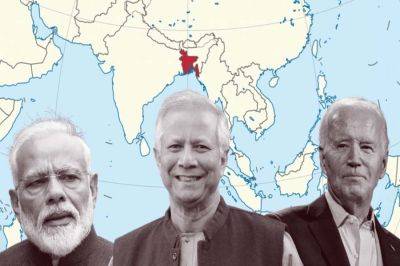Netanyahu’s war to end all wars
Israel’s Prime Minister Benjamin Netanyahu, having rejected a US-initiated Gaza ceasefire and calls from Western allies to avoid a wider Middle East war, has put into motion his own more bellicose plan: to secure Israeli military dominance in the region he feels has slipped away.
Netanyahu considers Hamas’s military defeat a first step toward closing loopholes left over from the conclusion of past wars that, in his mind, guaranteed future ones. The Israeli leader clearly wants only decisive victories.
Beyond the military and political destruction of Hamas, Netanyahu’s wider goals are to:
- Eliminate armed opposition in the West Bank and dismantle the Palestinian Authority that governs parts of the territory.
- Erase the ability of Hezbollah, a Shiite Muslim army and political party in Lebanon, to threaten Israel militarily.
- Undermine Iran’s leadership of the anti-Israel “Axis of Resistance,” which includes not only Hezbollah but also Syria and Houthi rebels in Yemen, the Shiite Muslim organization that has been blocking ship traffic in the Red Sea that leads to the Suez Canal.
- Put an end to the “two-state solution,” a peace formula long promoted by the United States that would grant Palestinian sovereignty over the Gaza Strip and the West Bank.
Netanyahu’s vision is an updated version of goals set by the late Ariel Sharon, an Israeli army general and bellicose one-term prime minister late in the 20th century.
Numerous protests have broken out in Israel against Netanyahu’s management of the Gaza war—but only in regard to arranging a ceasefire with Hamas to secure the release of about 100 hostages held in Gaza. His broader objectives have incited wide support and almost no domestic opposition.
“Even if an opposition party came







